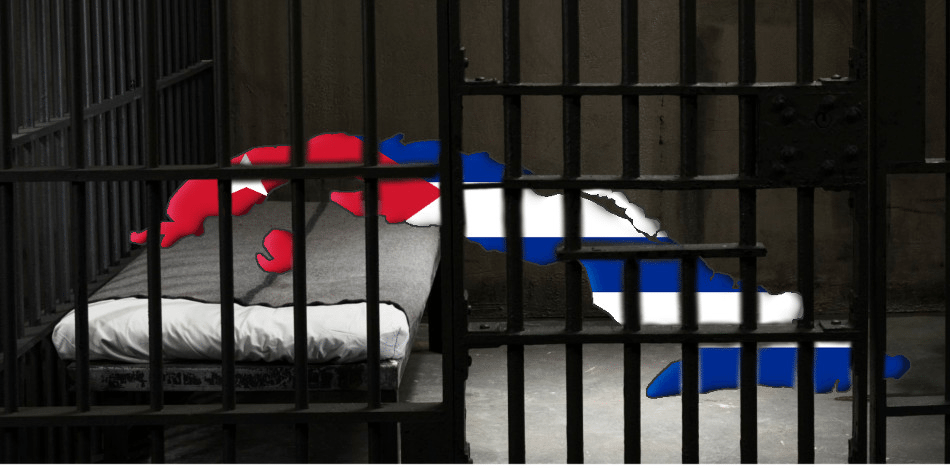
After a week of uncertainty, we finally heard from one of the founders of Cuba’s Anarcho-Capitalist Libertarian Movement—recently founded in the eastern province of Camagüey—who was detained by state forces without any notice of his whereabouts.
It so happens that only the Communist Party is legal in Cuba, and therefore all political activity outside the party is banned.
Which is why state security officers forcefully removed Nelson Rodríguez Chartand from his place of residence, only days after being released from a previous arbitrary detention and having his cell phone burned with acid to prevent any communications or data exchange. Without a phone, it was impossible for him to inform anyone about his situation. This time around, his crime was handing out posters with libertarian quotes.
Fellow members of the Libertarian Anarcho-Capitalist movement in Camagüey went to the local detention center to inquire about Rodriguez’s welfare. They were told that he was no longer under arrest but had been banished from the province of Camagüey as long as he intended to continue to carry out any political activities.
You can listen to a recording of the exchange here:
The authorities indicated that they would not allow any type of activism. Rodríguez had to stay quiet or leave.
Due to PanAm Post reports of what happened with Rodriguez, the publication was called “subversive” by the security forces during Nelson’s interrogation, and on the days he was arrested.
It is not the first time that accusations of this nature arise. A little more than a month ago, a note appeared on a socialist website that accused PanAm Post of being at war against the Castro regime. Which is not surprising under a regime that abolished press freedom.
In Cuba, publications have to be authorized by the state. The same applies to civil society groups (that is, voluntary associations). For this reason, Rodríguez was accused of creating a counterrevolutionary association.
On the first day of his detention, he was sent to a “technical facility”. On Sunday, he was transferred to a second unit, and on Monday afternoon he was sent by bus– or as they say in Cuba, “guagua”–to the Vivac detention center, which is for prisoners awaiting trial, still in the province of Camagüey. However, local authorities told the activists who requested information about his welfare, that he had already been sent back to Havana.
He went from one place to another without any means of communicating, no way to notify anyone about his well-being, and only reappeared after a week. This is the reality of anyone who opposes the regime in Cuba, to disappear in the middle of the night and remain under surveillance indefinitely.
Rodríguez was eventually deported to Havana, and it was not until recently that he was able to communicate. In addition to not having a telephone–and without the computer that was confiscated by state forces months ago–his Internet access was denied.

Since the government is the only Internet provider, Cubans access the world wide web through the only existing network: “Nauta.” Rodríguez’s user was blocked until further notice, as was the credit he had on it.
Cases like his demonstrate how economic and civil liberties go hand in hand. By not being able to access or offer a service, not having options to choose from, and depending economically on the regime and its ability to offer and enable permits, access to communication and information is enormously limited for individuals.
In a regime like Cuba’s, the monopoly of services allows control, censorship and the denial of the most fundamental civil liberties.
 Versión Español
Versión Español












